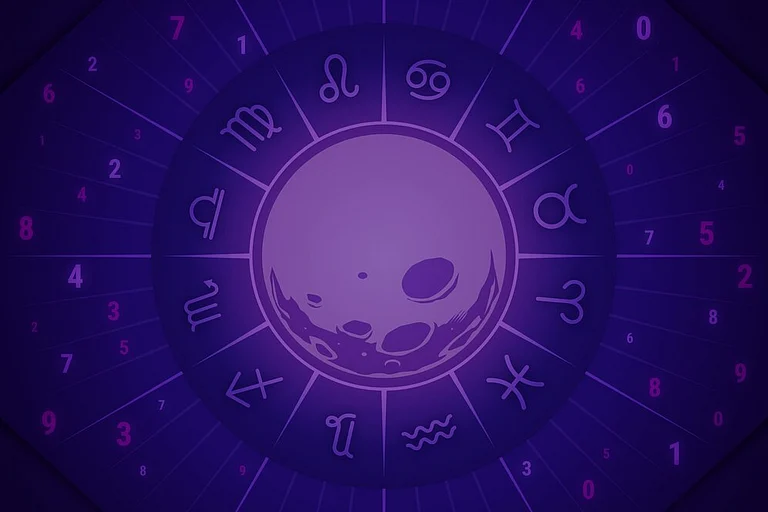THE Tamil Nadu factor is likely to play a pivotal role in the formation of a government at the Centre with the newly worked out seat-sharing arrangement between the DMK and the Maanali Congress founded by G.K. Moopanar poised to secure anywhere between 25 and 35 Lok Sabha seats. With political pundits foreseeing a hung Parliament, the outcome in Tamil Nadu could tilt the balance for any new mechanism that would create a government at the Centre.
The AIADMK-Congress alliance, on the other hand, has to now cope with the fact that the Congress has been virtually reduced to shambles—it does not even have a proper office to its name. Congress leaders such as TNCC president Kumari Ananthan and Union minister K.V. Thangabalu prefer to interact with the people through press conferences and statements. And AIADMK supremo J. Jayalalitha, who has begun her election campaign, is treating her Congress allies in a manner which falls just short of contempt. While kicking off her campaign in suburban Madras, the AIADMK machinery did not even allow the Congress candidate from the area to come on the dais with Jayalalitha. The Congress nominee was seen sitting among the crowd. This attitude is alienating even the remaining section of Congressmen who have stuck by the high command's directive.
In more ways than one, this year's simultaneous poll for the Lok Sabha and the assembly is different from all the previous ones the state has witnessed since 1967. One significant difference is the disappearance of the MGR factor. In the last 30 years the most important electoral factor was filmstar-turned chief minister Marudur Gopalamenon Ramachandran. However, nine years after his death, the magical aura surrounding MGR seems to have finally vanished and the much-touted MGR front is nowhere in the reckoning. And the other popular aspect—the Nehru-Gandhi family—is not on the scene.
While the AIADMK is solely dependent on the mass appeal of Jayalalitha, the two dominant breakaway Congress sections which are contesting the elections as two state parties—the Moopanar-led Maanali Congress and the Vazhapadi Ramamurthy-led Indira Congress—have made the removal of Jayalalitha from power their main plank. Says Moopanar: "The primary plank for this election is to get rid of the corrupt, authoritarian, dictatorial, and oppressive regime in the state and usher in an era of good governance".
On the other hand, the official AICC-nominated candidates are left with no rallying slogan and their tenuous relationship with the authoritarian AIADMK seems to have corroded their vote-base further. For the first time, the election plank for both the Lok Sabha and the assembly is: 'Should Jayalalitha be re-elected?' Though on paper there are four fronts—the AIADMK-led front, the DMK-led front, the MDMK-led front and the PMK-led front—the real contest is between the first two. Says Cho S. Ramaswamy, the political analyst-turned-political mediator who played a key role as the front man for filmstar Rajnikant's endorsement of the DMK-Moopanar alliance: "The divide in the anti-Jayalalitha vote is risky. Ideally, there should have been a broad-based front which accommo-dates all the anti-Jayalalitha groups, including Subramanian Swamy's Janata Party and the host of their MGR loyalists. Karunanidhi's reluctance to give them seats has kept the battle open".
But not many share Cho Ramaswamy's view. "The voters will be very choosy and they always back the winning party. The DMK-led front is clearly the fulcrum of the newly concretising anti-Jayalalitha sentiments that are sweeping the state", observes Era Thiagarajan, a Dravidian movement scholar.
This is also the first time in the history of the Congress that no national leader worth the name either visited the state or has any plans to conduct a state-wide electoral campaign. In the run-up to the 1989 assembly elections, Rajiv Gandhi had visited the state 17 times. And for the 1991 general elections , just before his assassination in the state, he had come calling 13 times. "How can we win the elections, if the Central leadership is not willing to canvass for us? Further, besides PVN (Prime Minister P.V. Narasimha Rao), who is there with some reasonable stature to do electioneering work for us?", asks a Congress Lok Sabha candidate.
The Congress-AIADMK alliance, for which the Madras-based Centre for Media Studies (CMS) survey of January-February 1996 predicted a victory in 25 to 30 seats, has tumbled down in the latest survey to a tally of 10 to 15 seats. The AIADMK fears are concentrated more on the possibility of securing the second place in the assembly by a loss to the DMK. "We don't want to face the same fate that the DMK had faced in 1991," observes an AIADMK minister.
However, much of the Congress' woes in Tamil Nadu could be said to be of its own creation. The Congress high command made major contributions to the growing political clout of Rajnikant when it gave him primetime on Doordarshan's popular Channel One to build up his image as an astute, but straightforward, no-nonsense man. Following this, the various meetings Narasimha Rao had with the star gave a new sheen to the man from tinsel world. "They are now unable to counter the genie they unleashed", observes S. Thirunavukkarasu, a former supporter of Moopanar and presently an AIADMK candidate.
In contrast, the DMK front has its grassroots support mechanism intact. Its alliance leaders like Moopanar and Chidambaram have an image of being honest politicians in the days of hawala. And Rajnikant has a sizeable youth following, making this axis a formidable one. In fact, should Rajnikant return from his foreign tour on April 14 and begin campaigning in earnest, it could spell trouble for the AIADMK. And the people who predicted a cakewalk for Jayalalitha are beginning to have second thoughts. It will be tough going for the AIADMK by any reckoning.
The aftershocks of an AIADMK-Congress debacle may well be felt in New Delhi. As latest polls show, the envisaged drop of 19 seats in its tally will only benefit the BJP.


























